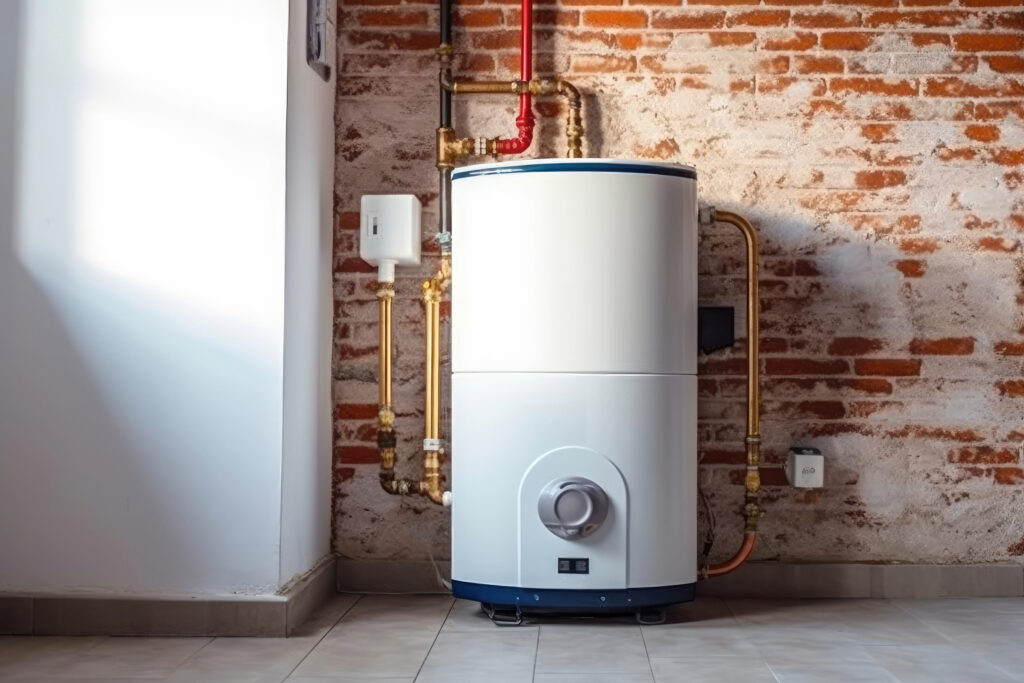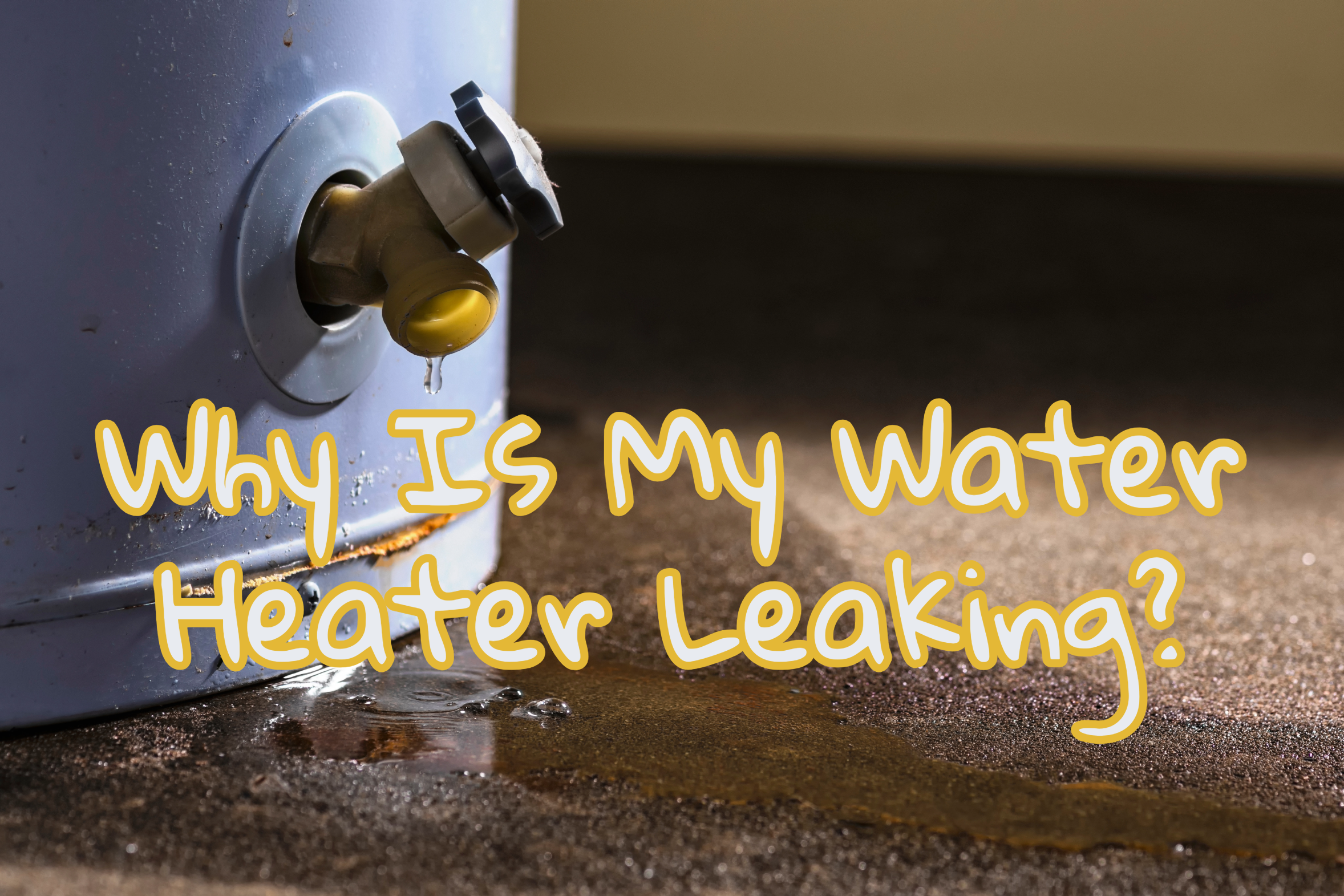A leaking water heater can be a homeowner’s worst nightmare. Not only can it lead to higher utility bills, but it can also cause significant water damage to your home. So, join your Beavercreek Plumbing & Drain professionals today as we explore why your water heater might be leaking and what you can do about it.
Before we start: Remember, when troubleshooting, you should always shut off the unit first before trying anything! Your safety matters!

Common Cause Number 1: A Loose Cold or Hot Water Inlet and Outlet Connection
One of the most common reasons for a water heater leak is a loose connection on the cold or hot water inlet and outlet pipes. These connections can loosen over time due to temperature changes and just good ole’ regular use. As a result, when the connections are loose, water can start seeping out. This might appear as a small puddle around the base of the heater or a slow drip from the pipes.
To check if this is the cause, inspect the connections at the top of the water heater. If you see any water around these areas, the connections might be the culprit. Tightening them with a wrench could solve the problem, but be careful not to overtighten them, as it could potentially cause more damage.
Common Cause Number 2: A Malfunctioning Pressure Relief Valve
Another potential cause of a leaking water heater is a malfunctioning pressure relief valve. This valve is designed to release excess pressure inside the tank. If it malfunctions, it can cause water to leak out. A faulty pressure relief valve can be a serious issue, as it means the tank might have too much pressure. When this happens, it can lead to the tank bursting, which is a dangerous situation.
To test if this valve is the issue, lift the valve’s lever slightly. If water comes out, then the valve is working. If it doesn’t stop leaking after you release it, this is a good sign you may need to replace it.
Common Cause Number 3: A Faulty or Loose Temperature & Pressure Relief Valve
Similar to the pressure relief valve, the temperature and pressure (T&P) relief valve can also be a source of water heater leaks. This valve helps control the water heater’s temperature and pressure. If it’s faulty or loose, it can also cause leaks. A leaking T&P valve can indicate that the water temperature is too high or that the pressure inside the tank is too great. Both situations can be dangerous and require immediate attention.
If you suspect the T&P valve is the problem, check for water around the valve. If it is wet, you might need to replace it.
Common Cause Number 4: A Leaking Inlet Valve
The inlet valve, which controls the flow of cold water into the water heater, can be another common cause of leaks. If this valve is damaged or not properly sealed, water can escape. A leaking inlet valve often results in water pooling around the base of the heater. You might notice a steady drip or a small stream of water coming from the valve area.
To address this issue, inspect the inlet valve for any signs of damage or wear. Tightening the valve or replacing it might be necessary.
When to Call a Professional Plumber:
Knowing when to bring in a professional can be difficult. But keep in mind, if you’ve tried all the troubleshooting steps and your water heater is still leaking, it’s time to call a professional plumber. Some issues might be too complex or dangerous for DIY repairs. A professional plumber can accurately diagnose the issue and provide a permanent solution. This might include replacing parts, fixing internal tank issues, or even recommending a new water heater.
A leaking water heater can cause significant stress and damage if not addressed promptly. By understanding the common causes and following the troubleshooting steps, you can identify and fix many issues yourself. However, don’t hesitate to give us a call if the problem persists. Ensuring your water heater is in good working order will save you from bigger issues down the line! Proactiveness is key!
Our team of experts is always ready to help you keep your home safe and comfortable. You can call Beavercreek Plumbing & Drain today at (937) 404-6575, or schedule an appointment online now by clicking here!




